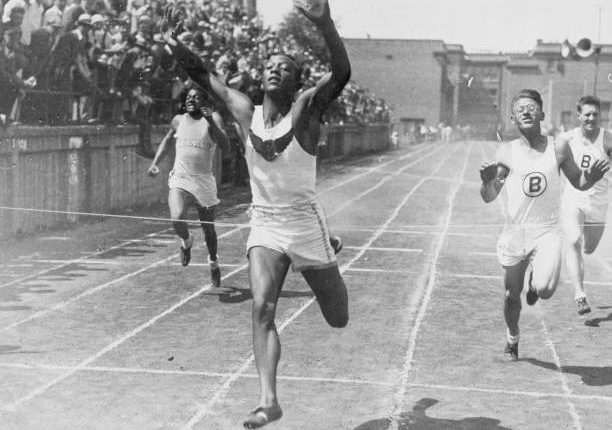
History: Jesse Owens crushed Adolf Hitler’s Aryan supremacy
Jesse Owens defied prejudice and rewrote history with his incredible talent and bravery at the 1936 Berlin Olympics. Learn how he dispelled the myths of supremacy to inspire a legacy of equality.
One of the most iconic moment in the sports history is the 1936 Olympics in Berlin, Germany. The sport event which have an agenda of showcasing the vision of Adolf Hitler about the Aryan supremacy to the world fell off the cliff as an African- American Athlete named Jesse Owen took the center stage and made a huge statement of equality.
Jesse who was the youngest of the ten children in his family was born in modes environment on September 12, 1913. His potential for athletic started to build up during his early days of school, and by the time he reached Ohio State University, he had already set multiple world records.
The motive behind the 1936 Olympics was not to promote sport but was used to push the idea of Arya superiority to the world by Adolf Hitler and the Nazi regime. There was a total domination by the German in the Olympics with swastikas and militaristic pageantry on full display. There were controversies about the participation of athletes, especially African-Americans in that event.
Upon the call to reject it the United States sent their athletes to compete in the game which included Jesse Owens.
Owens’ Dominance
Hitler’s racial narrative was crushed by Jesse Owens after winning four gold medals in four different events: the 100 meters, 200 meters, long jump, and 4×100 meter relay. Each victory was a masterclass in athleticism:
- 100 Meters: Owens sprinted to gold, clocking 10.3 seconds to solidify his status as the fastest man in the world.
- Long Jump: Owens faced a tough competitor in Germany’s Luz Long, but with Long’s sportsmanship and advice, Owens jumped 8.06 meters, setting a new Olympic record.
- 200 Meters: Owens blazed through the finish line in 20.7 seconds, earning his third gold medal.
- 4×100 Meter Relay: Anchoring the U.S. relay team, Owens helped set a world record of 39.8 seconds, marking his fourth and final gold.
The Legacy of Sportsmanship
One of the most remarkable moments of the 1936 Olympics was the bond between Jesse Owens and Luz Long. Despite being Hitler’s ideal of the Aryan athlete, Long publicly supported Owens during the long jump event, even congratulating him after his victory. Their camaraderie defied the racist narrative of the Nazi regime and remains a symbol of sportsmanship transcending political and racial barriers.
Impact and Aftermath
Owens’ performance was not just a victory for himself but a huge moment for humanity. He became a global symbol of racial equality, disproving Hitler’s supremacist ideology. However, upon returning to the United States, Owens still faced racial discrimination, highlighting the hypocrisy of American society at the time.
Though he struggled financially after his athletic career, Owens’ legacy grew over the decades. He was awarded the Presidential Medal of Freedom in 1976 and remains a source of inspiration for athletes and civil rights activists alike.
Jesse Owens’ triumph at the 1936 Berlin Olympics is a reminder of the power of perseverance, courage, and talent to challenge oppression and prejudice. His victories transcended sports, leaving a legacy that continues to inspire the world to this day. On the top stage, under the wicked political shadow, Owens’ light shone brightest, proving that excellence knows no race, color, or creed.
This story encourages all athlete all around the world that they are not below anyone but they can achieve anything if they put their mind to it.
Follow us @Sportscliffs on Twitter and Instagram and also like our facebook page

